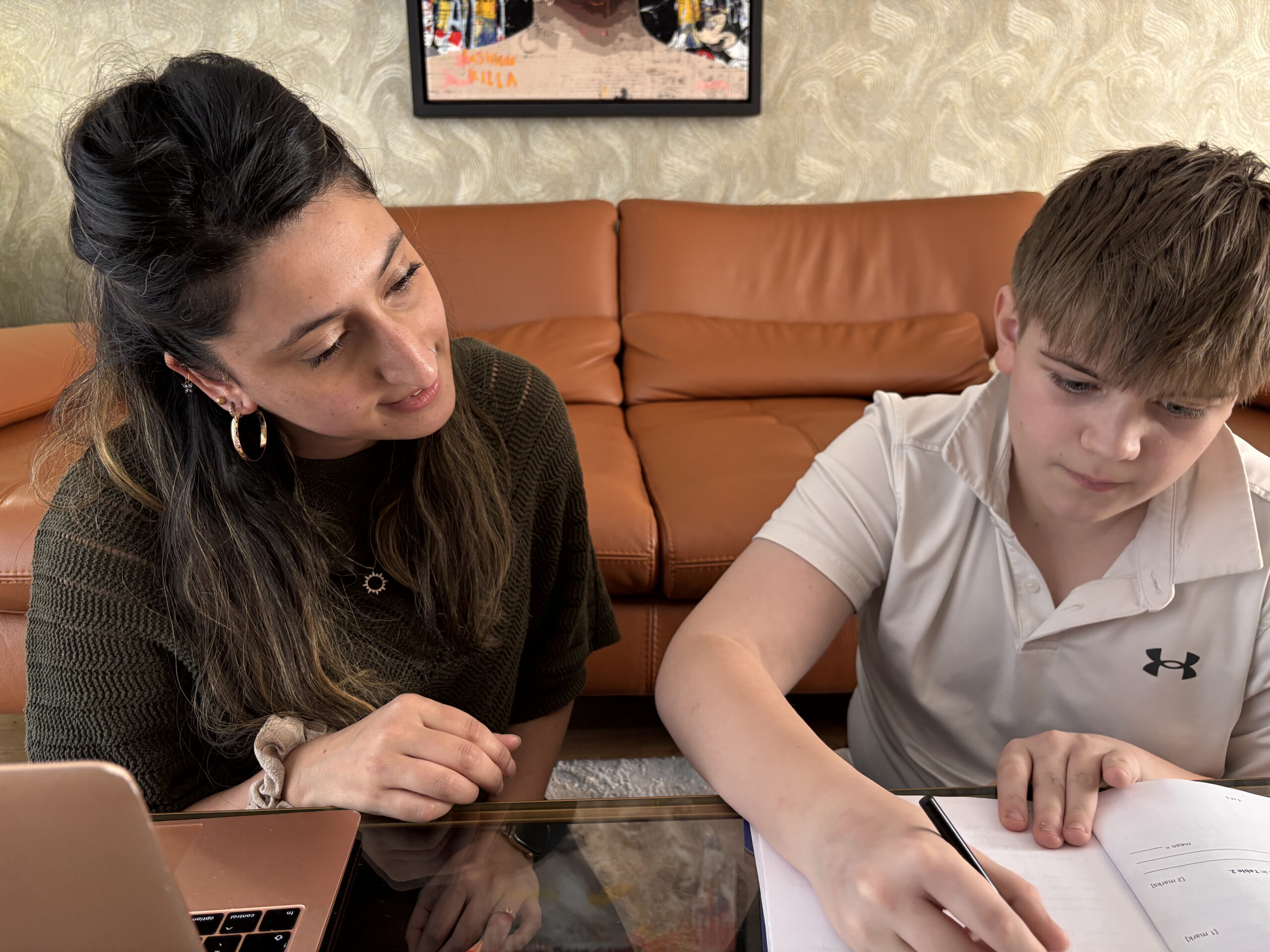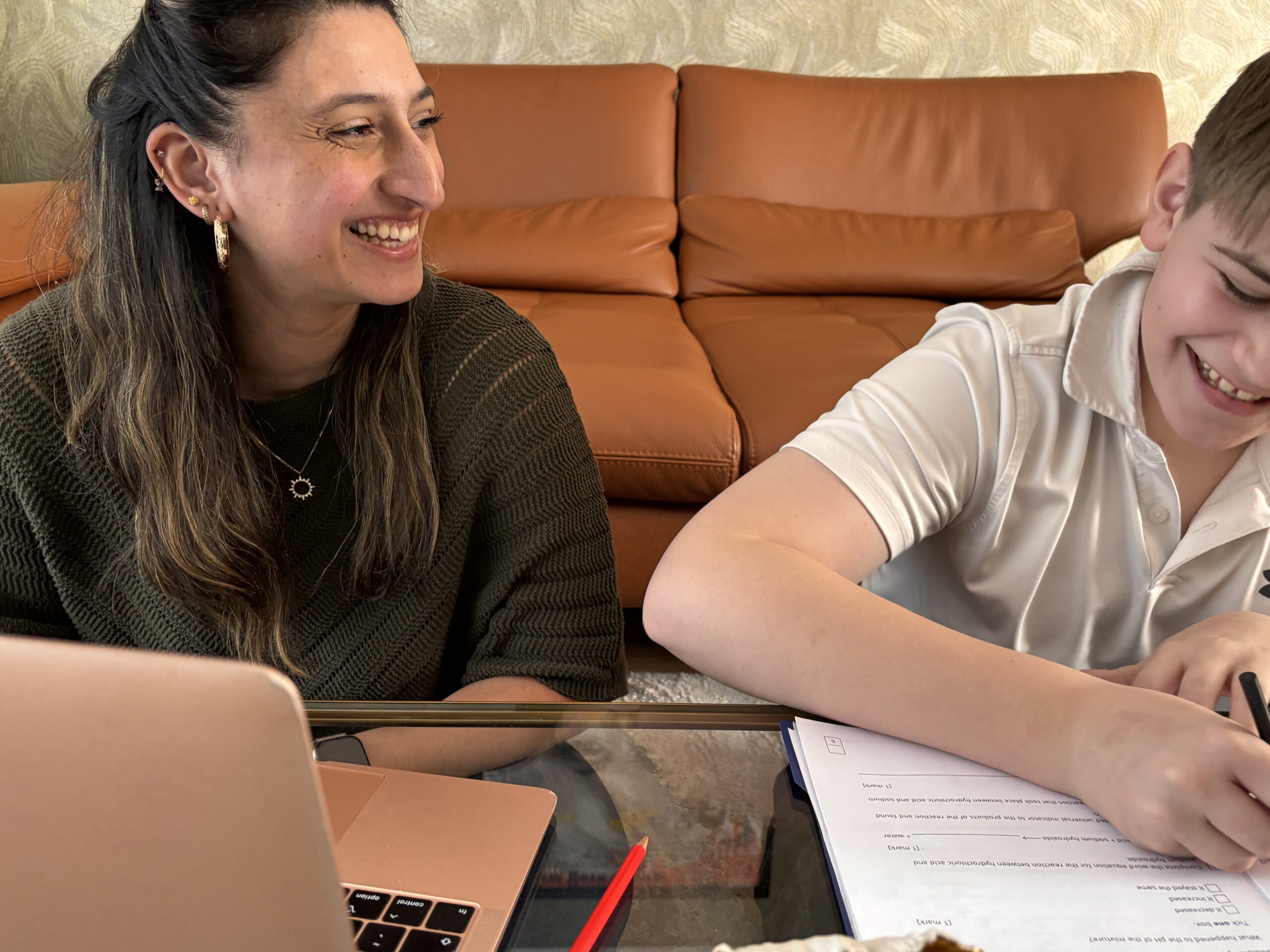What does Social, Emotional, and Mental Health Mean?
Social, Emotional, and Mental Health refers to difficulties in managing emotions, maintaining relationships, and coping with stress and anxiety.
The challenges that come with facing depression, low confidence, and emotional dysregulation can create barriers to learning and understanding. Emotional dysregulation is when someone finds it difficult to manage their emotions in a way that is appropriate for the situation.
Furthermore, when learners do not have the words in their language to communicate what they are feeling, this can make their stress and anxiety worse and make people feel lonely and vulnerable.
Traditional school and work environments may not always provide the emotional support needed to help learners reach their full potential.
Neurodivergent individuals and immigrant communities are more at risk of being diagnosed with mental health challenges as they are trying to fit in and hide their difficulties from their friends, families, and teachers.


Why Choose The Learning Compass?
We recognise that social, emotional, and mental health challenges can impact how learners focus, engage and thrive in social settings and work environments.
We offer friendly and personalised tutoring to build confidence, resilience, and engagement. Our tutors use structured, compassionate approaches to create a positive and empowering learning environment. With multilingual support, we ensure learners feel comfortable and understood while fostering emotional well-being alongside academic success.
Personalised Learning Plans:
- Learning plans tailored to emotional and academic needs, promoting confidence and self-esteem.
- A patient, understanding approach to support anxiety, stress, or low motivation.
- Structured sessions with clear, achievable goals to reduce overwhelm.
- Flexible tutoring to allow for breaks and emotional regulation.
- Encouraging social-emotional skills, resilience, and positive mindset development.
- Regular communication and feedback to track progress and adjust strategies.

- A focus on well-being alongside academic growth to create a balanced learning experience.

Expert Social, Emotional, and Mental Health Support – Specialist Tutors
- Trained in supporting learners with anxiety, emotional regulation difficulties, and confidence building.
- Multilingual expertise for a comfortable, stress-free learning experience.
- Adaptive teaching methods to reduce pressure and encourage gradual progress.
- A compassionate and empathetic approach to create a safe, encouraging space for learning.
Multilingual Support Options:
- Instruction in multiple languages to provide a familiar and supportive learning experience.
- Respect for cultural and emotional backgrounds to create a safe, inclusive space.
- Encouraging communication in a learner’s preferred language to ease frustration and stress.
- Tutors who understand emotional challenges related to learning in a second language.
- Building trust and positive relationships through understanding and patience.


- Creating a non-judgmental space where learners feel valued and supported.
How Our Tutors Support Learners with Social, Emotional, and Mental Health Support Challenges:
- Providing a calm, structured learning environment to reduce anxiety.
- Encouraging self-expression, confidence-building, and emotional resilience.
- Using mindfulness techniques and positive reinforcement to support emotional well-being.
- Teaching strategies for stress management, focus, and emotional regulation.

FAQs
Before reaching out, you might find your answer in our FAQs section. It covers a wide range of topics, including account setup and premium membership benefits.
FAQs
1. How can I find a tutor who understands Social, Emotional, and Mental Health Support challenges?
Use The Learning Compass search filters to find tutors specialising in emotional and social well-being alongside academic support.
2. What age groups do you support for Social, Emotional, and Mental Health Support-friendly tutoring?
We cater to learners of all ages, from children to adults, adapting strategies to individual emotional needs.
3. How do I know if I/my child has Social, Emotional, and Mental Health Support challenges if they don’t have a diagnosis?
A formal diagnosis isn’t necessary to receive support. If anxiety, confidence issues, or emotional difficulties impact learning, our tutors can implement strategies to help.
4. Can Social, Emotional, and Mental Health Support challenges be managed without therapy and medication?
Yes. While therapy is beneficial and medication can help, structured tutoring, emotional support, and confidence-building strategies can complement professional mental health support. Always see a professional before considering any kind of therapy or medication for challenges related to anxiety or depression.
5. Do you offer online tutoring for learners with Social, Emotional, and Mental Health Support challenges?
Yes, we provide both online and in-person tutoring for flexibility and comfort as many students suffering from anxiety prefer their own homes as learning environments.
6. Can The Learning Compass help even if I/my child hasn’t been diagnosed yet?
Absolutely! Our tutors support learners with social and emotional difficulties, whether formally diagnosed or not.
7. How do tutors personalise learning plans for learners with Social, Emotional, and Mental Health Support needs?
Many tutors offer a free consultation to assess needs and create a tailored, supportive learning approach. Speak to them about your child and your needs to ensure you are receiving the kind of support that is right for you and your family. All learning plans will be tailored towards those needs.
8. How often should I/my child have tutoring sessions?
Frequency depends on individual needs and schedules. Tutors collaborate with families to create a flexible, supportive plan.
9. How do I get started with Social, Emotional, and Mental Health Support-friendly tutoring?
Click on [insert link here] to search for a tutor using filters for language, subject, and Social, Emotional, and Mental Health Support needs.
10. Can tutoring help improve confidence and emotional resilience?
Yes! Our tutors focus on positive reinforcement, encouragement, and emotional regulation strategies to build confidence and independence.
11. Do all tutors have experience with Social, Emotional, and Mental Health Support challenges?
Tutors who list Social, Emotional, and Mental Health Support as a specialist area have experience working with learners facing emotional and social difficulties.
12. How will tutors provide feedback on progress?
Discuss preferences with your tutor during the initial consultation to ensure a feedback method that works best for you.
13. Will my/my child’s Social, Emotional, and Mental Health Support challenges impact their learning as a non-English speaker?
Language barriers can add stress and anxiety, but our multilingual tutors use tailored strategies to ensure a comfortable, effective learning experience.
14. What is CAMHS?
CAMHS (Child and Adolescent Mental Health Services) is the NHS service that supports children and young people with mental health difficulties. It provides assessments, therapy, and interventions for issues such as anxiety, depression, ADHD, and emotional regulation challenges. Referrals can be made through GPs, schools, or self-referral in some areas.
While CAMHS focuses on clinical mental health support, tutoring with The Learning Compass can complement this by creating a structured, low-pressure learning environment that promotes confidence and emotional well-being.
See the following link for more information:
Search Process for Social, Emotional, and Mental Health Support - Specialist Tutors:

-
Search for a tutor using filters for language, subject, location, and SEMH-friendly tutoring style.
- Choose a tutor from the list of available specialists.
- Reach out using our in-built messaging platform.
- Discuss goals, challenges, pricing, and whether a free consultation is offered.
- Confirm a personalised plan with the tutor.
- If no suitable tutor is found, post a request on the learner bulletin to notify all premium tutors.
- A tutor will reach out if they are a good fit.
